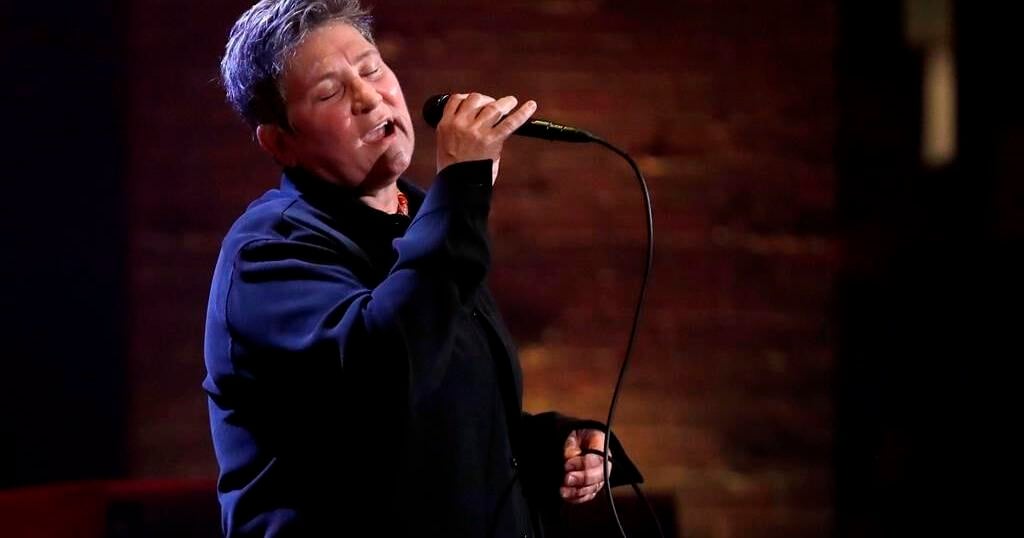EDMONTON – Josh Ross and his whisky-soaked ballad of heartbreak and hope took home top honours Saturday as k.d. lang got the band back together at the 2024 Canadian Country Music Association Awards.
Ross, from Burlington, Ont., captured single of the year for “Trouble.” The 28-year-old former college football player turned country star also took home male artist of the year and entertainer of the year at the show, held at Rogers Place in Edmonton.
“This song was a surreal song,” Ross said, adding it highlights the struggles he felt when moving to Nashville to pursue his music career.
Ross said he and his band play roughly 150 shows every year and are never home, but said he feels that taking home entertainer of the year made the hard work worth it.
“I thank each and every one of you,” he said.
On Friday, he also won two industry awards for top-selling Canadian single of the year (“Trouble”) and top-selling Canadian album of the year (“It’s Complicated.”)
Alberta’s MacKenzie Porter took home a top prize as female artist of the year, ending the five-year run for Tenille Townes.
The win was sweet relief for Porter, of Medicine Hat, Alta., who had been nominated for the award seven times in the last decade before capturing her own lightning in a bottle Saturday.
She won video of the year for “Chasing Tornadoes,” a toe-tapping salute to the swirling winds of romance set against the lonely Nevada desert and the bright lights of Las Vegas.
Porter said it takes a lot of hard work and hustle to succeed as a female in the country music industry and gave a shout out to her fellow singers and newborn daughter.
“I’ve been nominated (for the CCMAs) 28 times and this is one of my first wins,” said Porter in her first televised appearance since having a baby.
“So to all of you artists out there, keep pushing.”
Porter was up for six awards, tying the top nomination spot with Jade Eagleson of Bailieboro, Ont. Eagleson took home album of the year for “Do It Anyway.”
Porter co-hosted the show with American crooner Thomas Rhett, and along with the music, there was a little hockey. Edmonton Oilers players Leon Draisaitl and Corey Perry came on stage and dubbed Rhett an honorary Canadian as he donned an Oilers jersey.
The highlight of the night was lang celebrating her induction into the Canadian Country Music Hall of Fame by reelin’ and rockin’ with The Reclines for the first time in 35 years.
They performed “Big Boned Gal” — from the last album they recorded together in 1989 — about the gal in the blue dress with the bounce in her step shakin’ and snakin’ at the legion hall.
Lang embodied the character in the song as she strutted across the stage, clad in a blue and green western-style dress.
“That was a piece of cake,” lang told reporters after her performance. “Good friendships have this capacity to erase time. That certainly happened when we got together.”
Lang, from Consort, Alta., burst onto Edmonton’s music scene in the early 1980s with The Reclines, a tribute band to American country star Patsy Cline.
She told the crowd she’s “profoundly grateful” for the experiences she’s had in her career and thanked Canadians for going on the journey with her.
“I love you, big time,” said lang.
Among the other winners, the James Barker Band from Woodville, Ont., took home group of the year and the fans’ choice award. During their acceptance speech, frontman Barker hinted at new music and a possible tour in 2025.
Owen Riegling of Mildmay, Ont., also won for breakthrough artist of the year and best songwriting for “Old Dirt Roads.”
Speaking on the red carpet before the awards show, Riegling remembered writing the song five years ago in one hour and recorded it as a demo.
Once he signed with Universal Music Canada, they recorded a new version.
“It’s had a long journey, and it’s cool to see it finally connecting with people and reaching people,” he said.
“Never would have ever guessed I’d end up here.”
This report by The Canadian Press was first published Sept. 14, 2024.

























